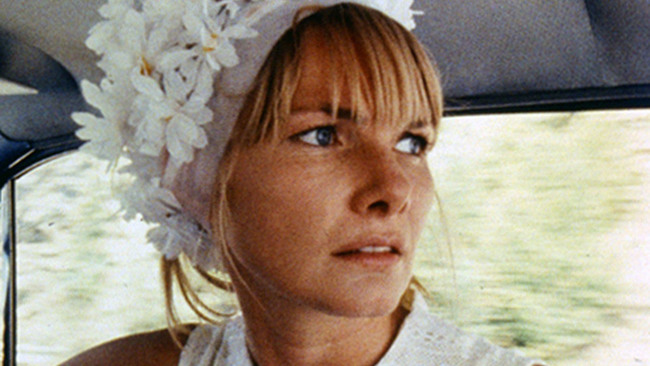Books: Welles, Loden, and More

Robert Kolker “is best known for his landmark study A Cinema of Loneliness: Penn, Kubrick, Coppola, Scorsese, Altman (1980), now in its fourth edition, as is his influential textbook, Film Form and Culture (1999),” writes Jonathan Kirshner for the Boston Review. “Kolker has also edited volumes on Hitchcock’s Psycho (1960) and Kubrick’s 2001: A Space Odyssey (1968).” His new book The Extraordinary Image: Orson Welles, Alfred Hitchcock, Stanley Kubrick, and the Reimagining of Cinema “takes as a welcome point of departure the notion that filmmaking is essentially the craft of building images, and telling stories by way of their composition and juxtaposition. . . . But there are pitfalls inherent to this promising enterprise.”
John Cheever’s story “The Swimmer” (1964) and Frank Perry’s film The Swimmer (1968) are “two complementary works of pitiless all-American existentialism that today look to be, simultaneously, autopsies and prophecies,” writes Michael Atkinson for the Library of America. “[I]t’s easy to see how director Perry and his wife, the screenwriter Eleanor Perry, became gripped by the story’s creepy eloquence. . . . In every way the film is necessarily more concrete than the story, and the Perrys compensated for the loss of Cheever’s enigmatic narration, and its impressionistic suggestions of temporal confusion, in fascinating ways.” On a related note, Christina Newland writes about swimming pools in the movies for the BFI.
Bilge Ebiri’s interview with Don Winslow for the Village Voice takes an alarming turn when the focus shifts to the author’s days working in movie theaters in Times Square during the seventies and eighties. I won’t spoil the story, but: High Anxiety indeed. Winslow’s new book is The Force, set against the backdrop of rampant corruption in a municipal government. James Mangold is attached to direct the adaptation. Winslow’s 2010 novel Savages became an Oliver Stone movie and Ridley Scott is working on a series based on The Cartel (2015).
“Who would have figured the Canadian director of such diverse films as The Apprenticeship of Duddy Kravitz (1974), North Dallas Forty (1979), and First Blood (1982) would be such an engaging raconteur?” asks Irv Slifkin at Film International. “But here he is, at age 86, recounting great stories about the making of his films, the people he’s met and the struggles he’s faced during his 50-plus years in the film and TV business in his autobiography Director’s Cut: My Life on Film, co-written by Josh Young.” That director is, of course, Ted Kotcheff.
Jonathan Rosenbaum’s posted his introductions to the Chinese editions of two books by James Naremore, More Than Night: Film Noir in its Contexts and Acting in the Cinema.
“Short yet rich in thoughtful observation (and some fascinating details), [Nathalie Léger’s] Suite for Barbara Loden is an unusual not-quite-fiction, consistently compelling and artfully drawn,” writes M. A. Orthofer. The image at the top of this entry, by the way, is from Loden’s Wanda (1970).
Josh Larsen’s Movies Are Prayers: How Films Voice Our Deepest Longings is “one of the most engaging and interesting takes on why we go to the movies that I’ve read in years,” writes Brian Tallerico at RogerEbert.com.
Rhys Tranter presents passages selected from Pamela Morris’s translation of Georges Bernanos’s 1936 novel The Diary of a Country Priest, adapted by Robert Bresson in 1951.
For news and items of interest throughout the day, every day, follow @CriterionDaily.



